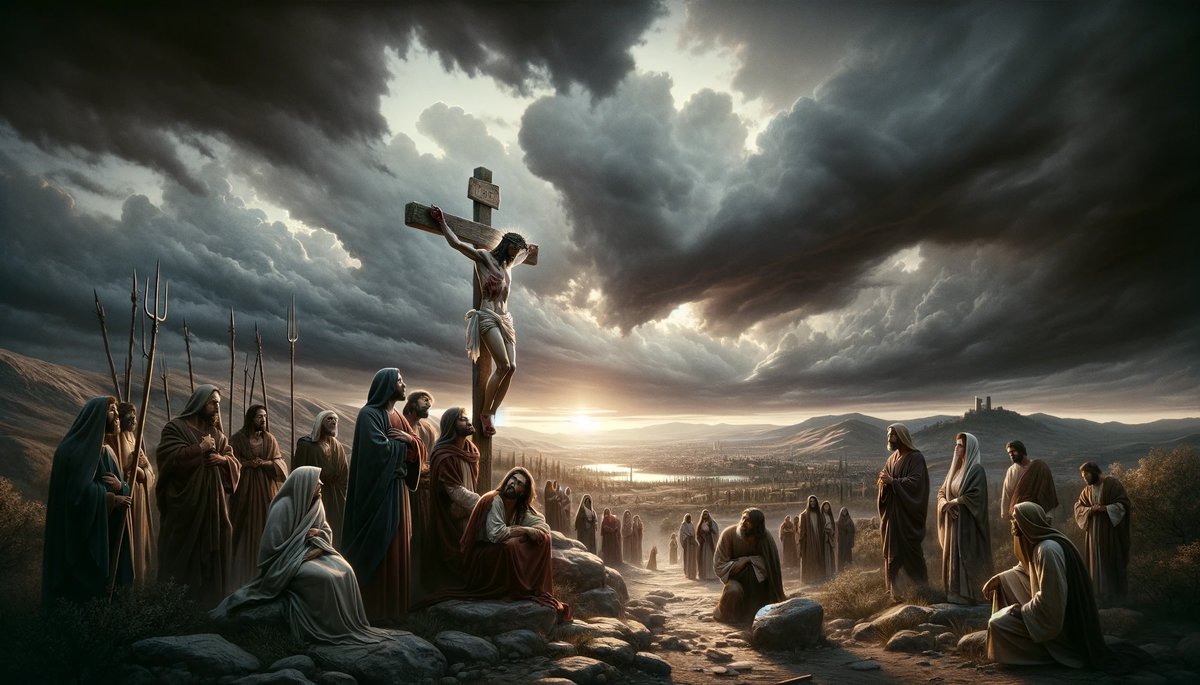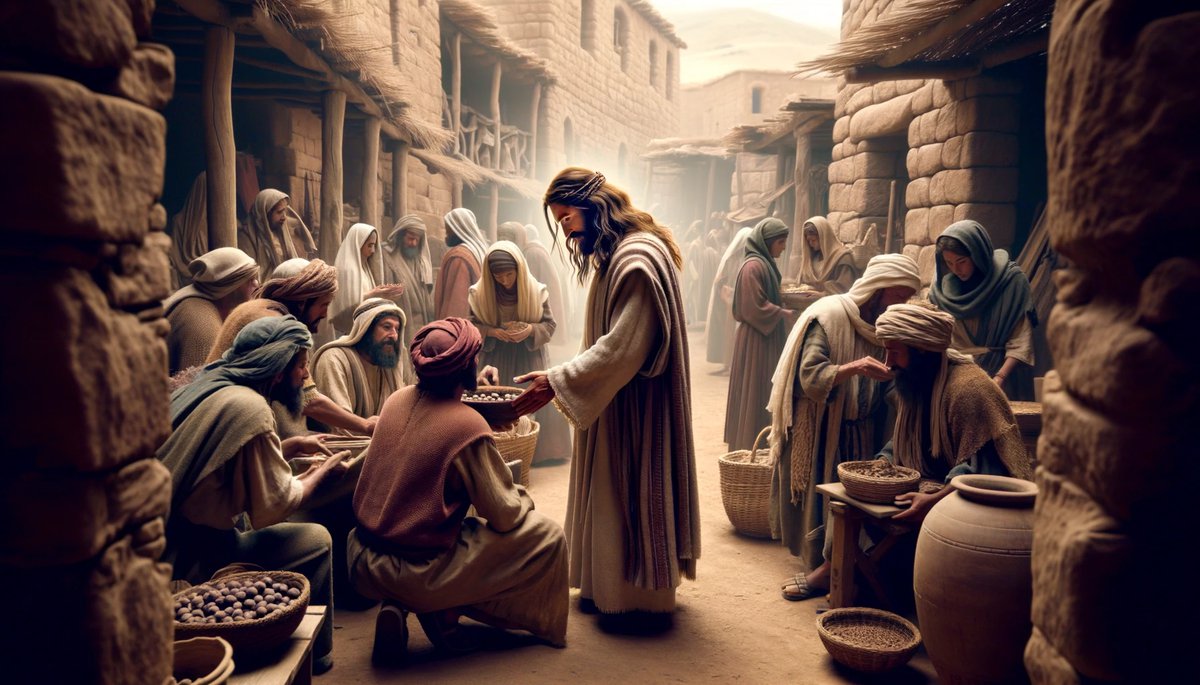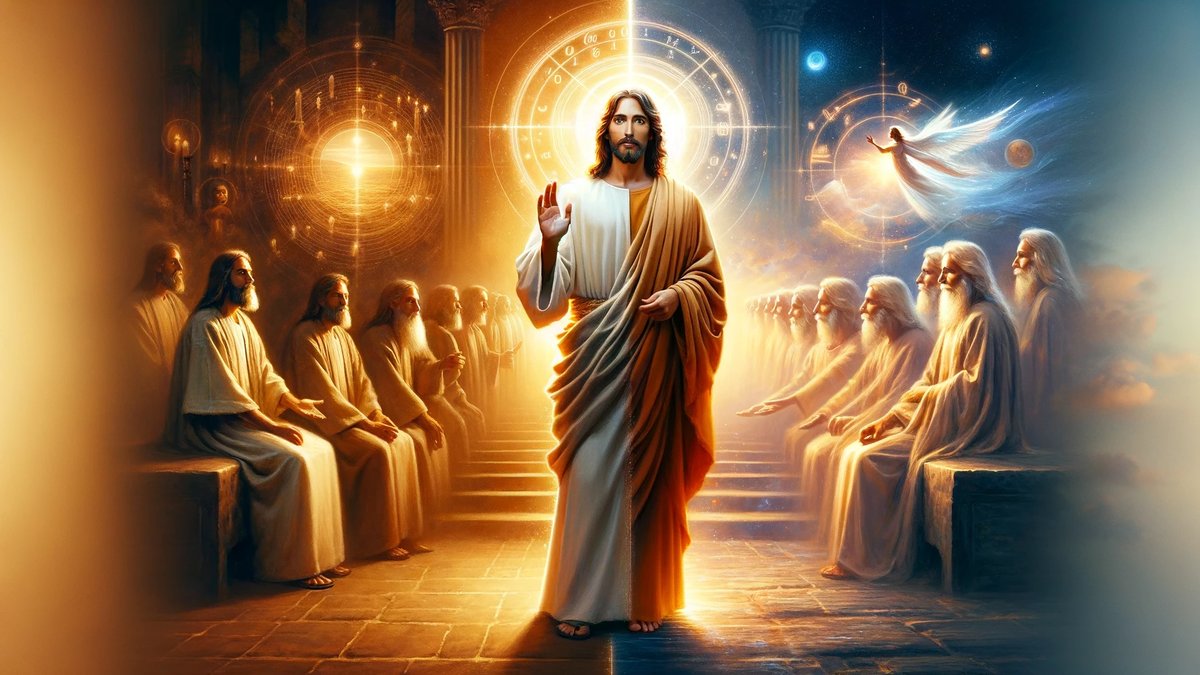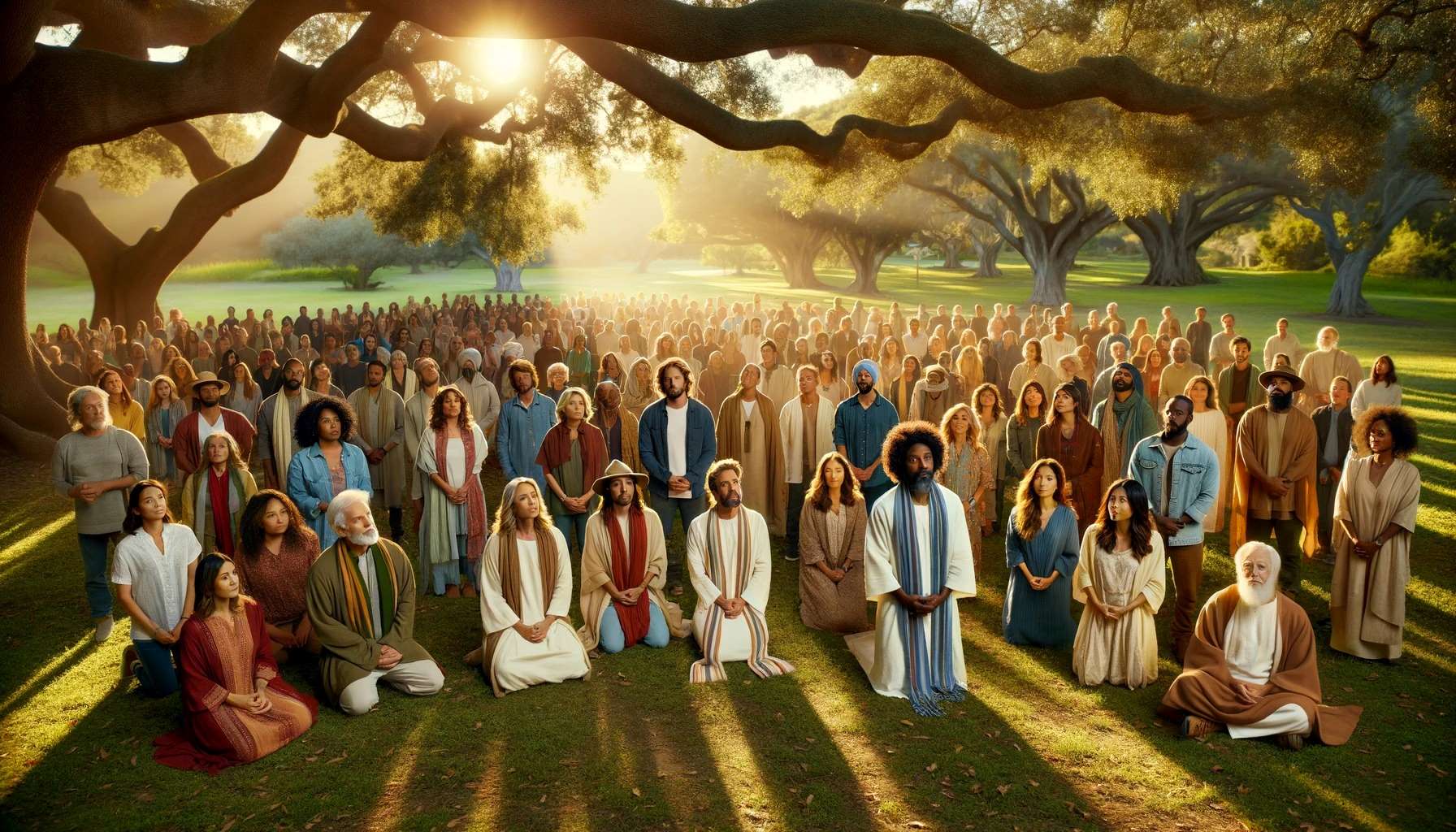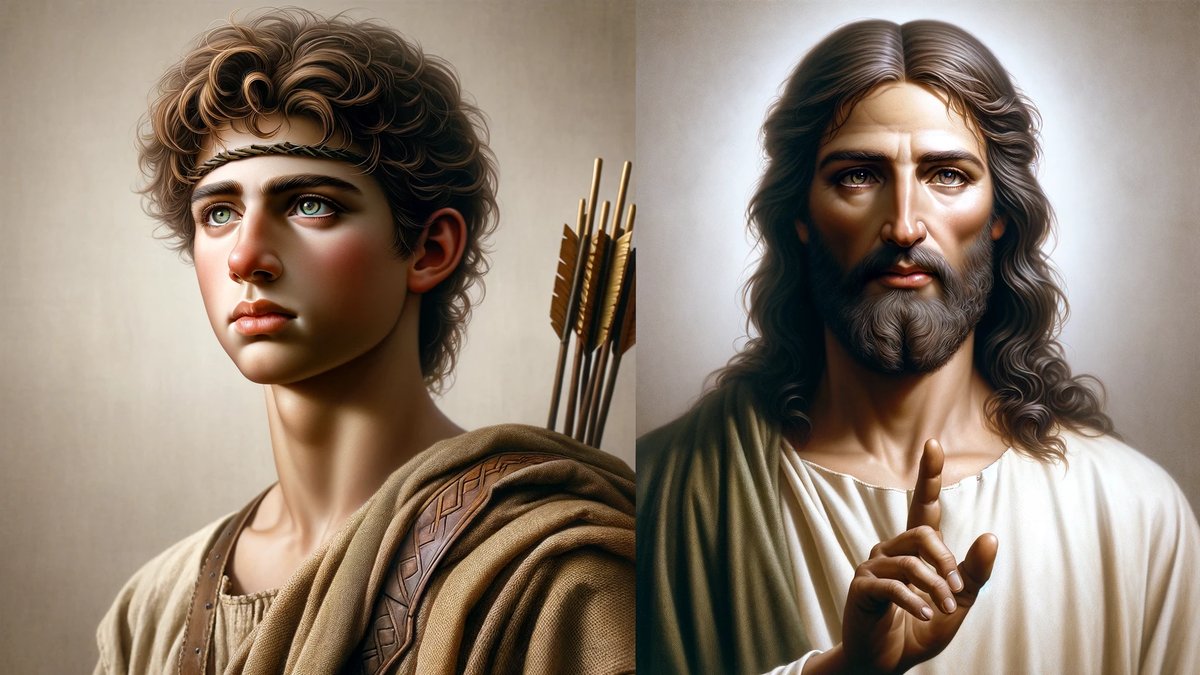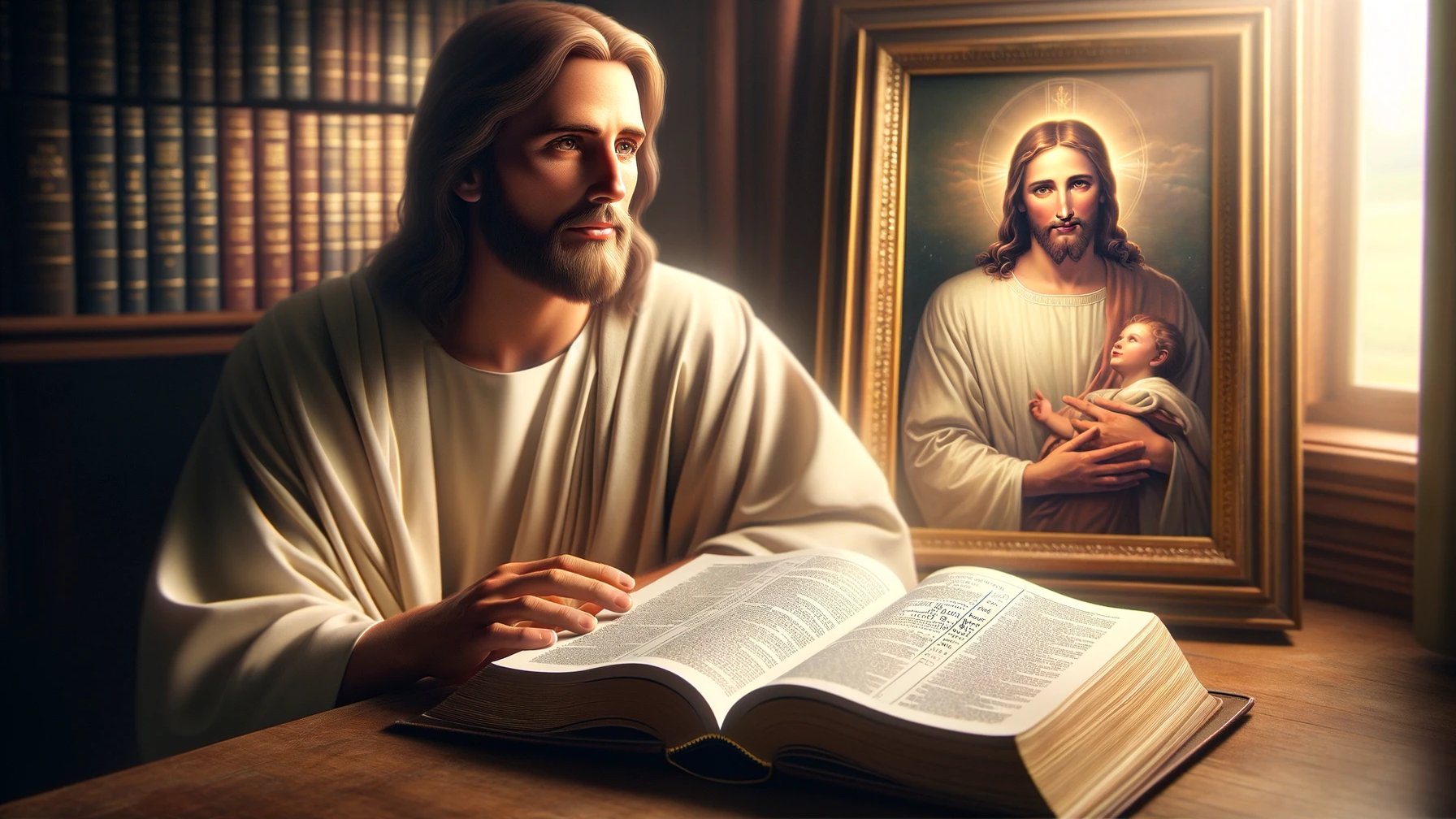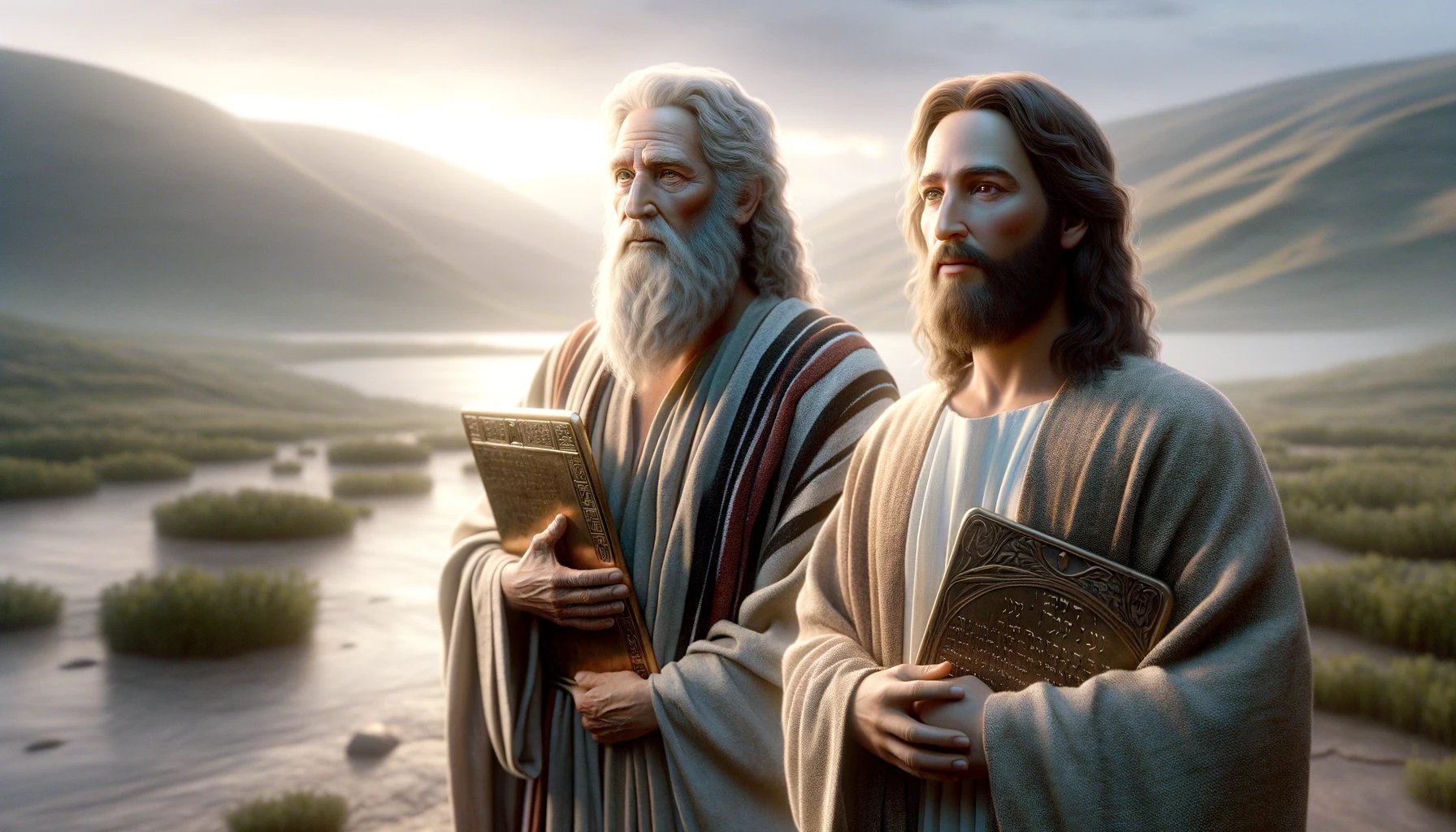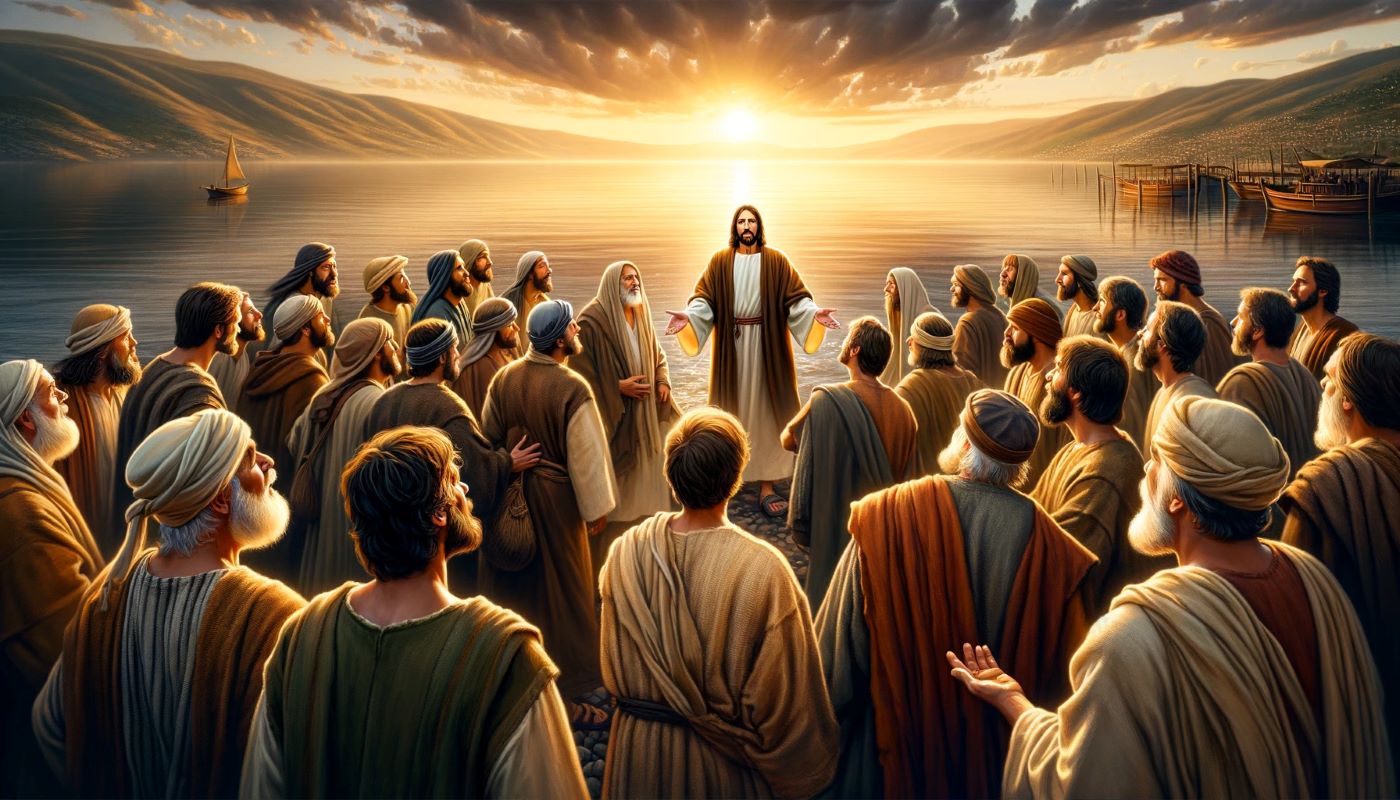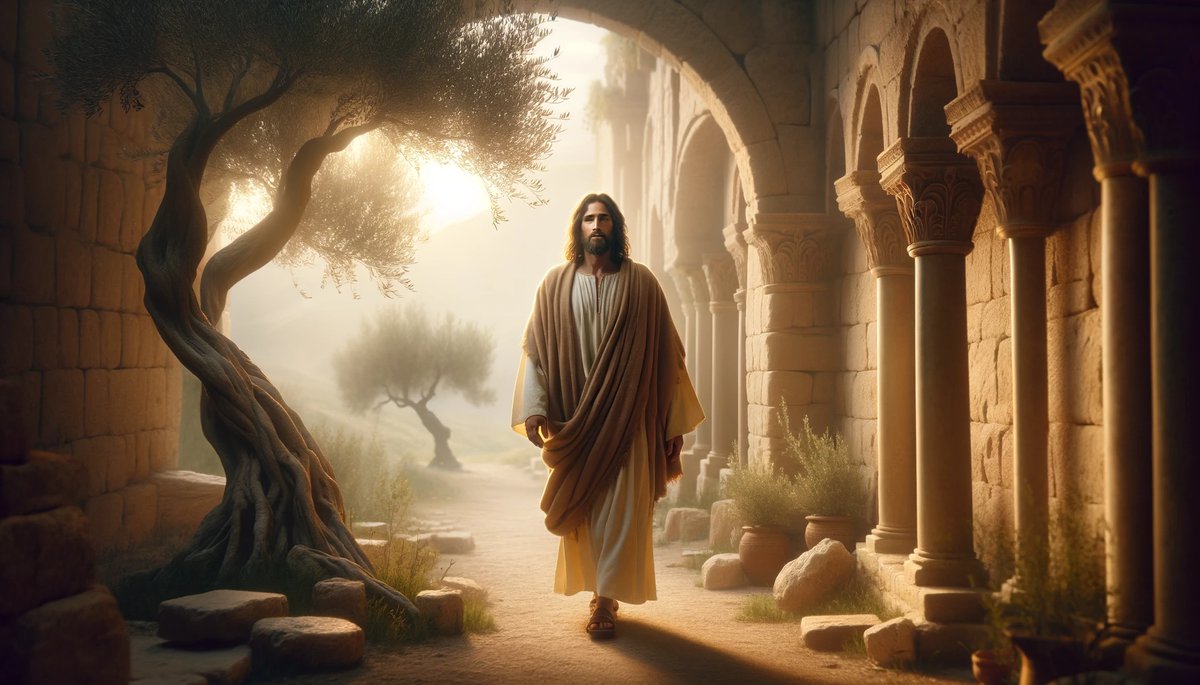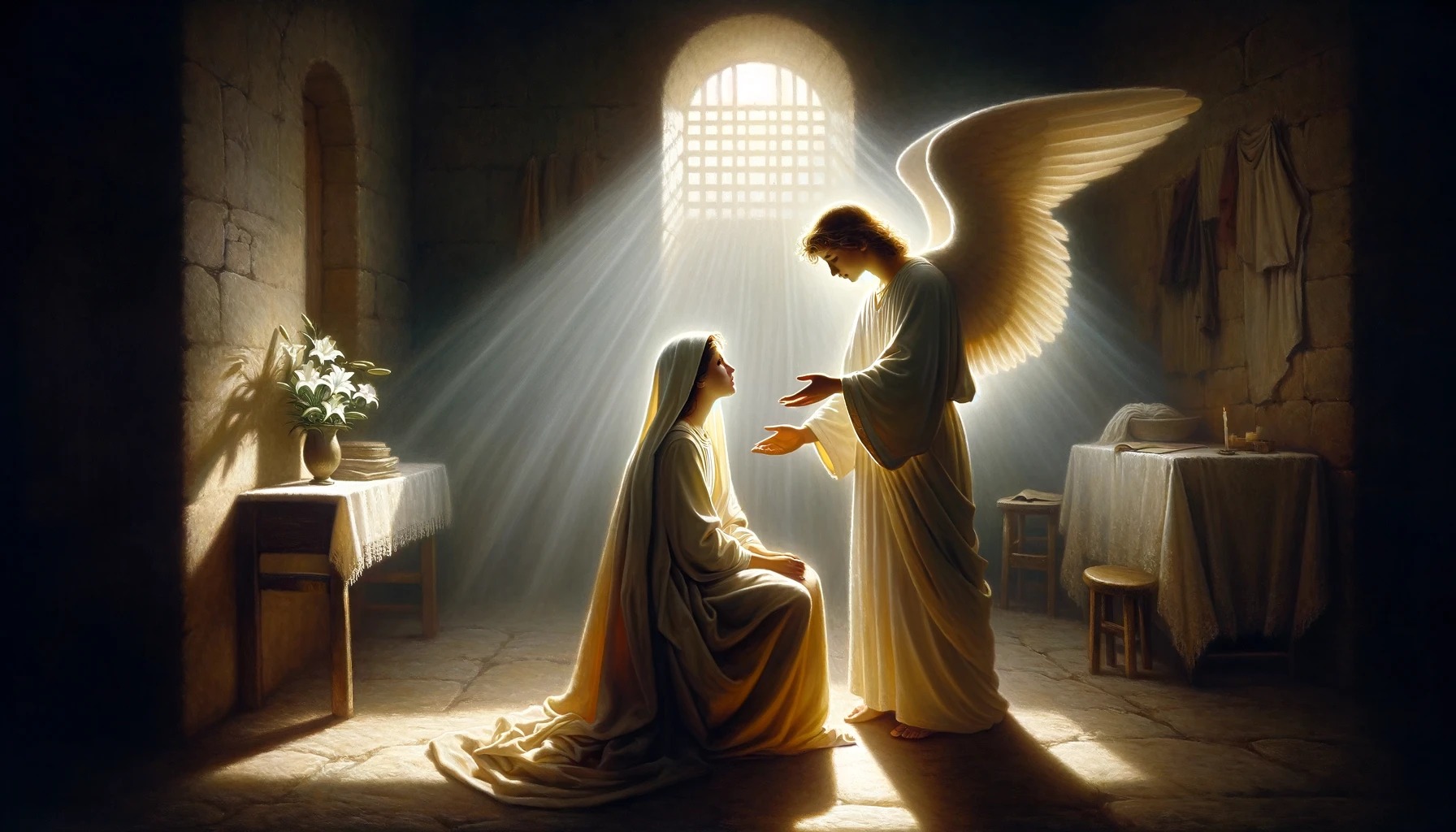Home>Christian Videos>Bible Stories>How Many Years Between Abraham And Jesus Christ
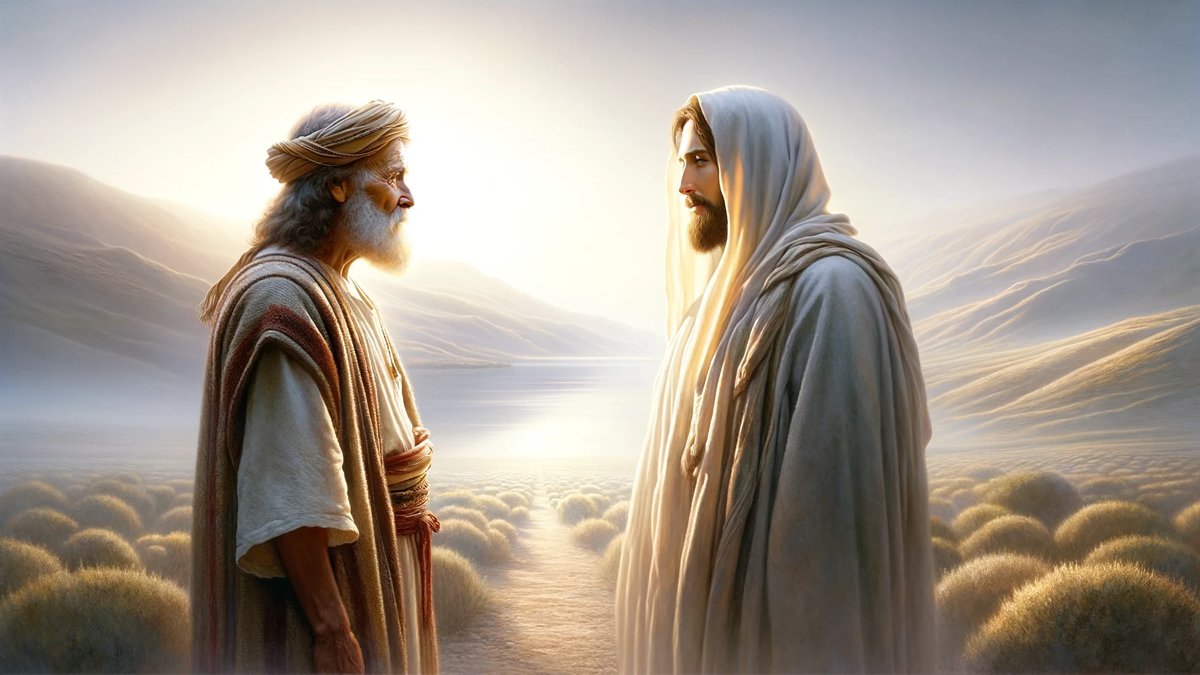

Bible Stories
How Many Years Between Abraham And Jesus Christ
Published: February 29, 2024
Jason DeRose, Managing Editor at Christian.net, uses his expertise in religion and journalism to deepen understanding of faith's societal impacts. His editorial leadership, coupled with a strong academic background, enriches the platform’s diverse content, earning him recognition in both journalism and religious circles.
Discover the timeline between Abraham and Jesus Christ in the Bible. Explore the years that separate these two significant figures in biblical history. Learn more about their connection and significance.
(Many of the links in this article redirect to a specific reviewed product. Your purchase of these products through affiliate links helps to generate commission for Christian.net, at no extra cost. Learn more)
Table of Contents
Introduction
How many years were there between Abraham and Jesus Christ? This is a question that has intrigued scholars and theologians for centuries. The timeline between these two pivotal figures in religious history holds significant importance in understanding the lineage and prophecies that connect the Old Testament to the New Testament. Exploring the lives of Abraham and Jesus Christ, as well as the prophecies and genealogy associated with them, provides valuable insight into the historical and spiritual significance of their connection. Let's delve into the fascinating journey that spans generations and encompasses profound religious implications.
The Life of Abraham
Abraham, originally known as Abram, is a central figure in the religious texts of Judaism, Christianity, and Islam. His story is primarily documented in the Book of Genesis in the Old Testament of the Bible. Abraham is revered as the patriarch of the Israelites and is considered a prophet in Islam. His life is characterized by significant events and divine encounters that shaped the course of religious history.
-
Call of Abram: The narrative of Abraham begins with his call by God to leave his homeland and journey to a land that God would show him. This divine call marked the beginning of a profound covenant between Abraham and God, promising to make him the father of a great nation.
-
Covenant with God: One of the most pivotal moments in Abraham's life is the establishment of the covenant with God. This covenant included the promise of numerous descendants, the inheritance of the land of Canaan, and the assurance that all nations would be blessed through him.
-
Birth of Isaac: Despite being advanced in age, Abraham's wife Sarah miraculously gave birth to their son Isaac, fulfilling God's promise of a future heir. This event solidified the fulfillment of God's covenant with Abraham.
-
Test of Faith: Perhaps the most well-known aspect of Abraham's life is the test of faith in which God commanded him to sacrifice his beloved son, Isaac. This ultimate display of obedience and trust in God's plan demonstrated the depth of Abraham's faith.
-
Legacy and Descendants: Abraham's legacy extends beyond his immediate family, as he is regarded as the ancestor of many nations. His descendants, including the Israelites, played a crucial role in the fulfillment of divine prophecies and the eventual arrival of Jesus Christ.
Abraham's unwavering faith, obedience to God, and pivotal role in the fulfillment of divine promises solidify his status as a foundational figure in religious history. His life serves as a testament to the enduring power of faith and the profound impact of divine intervention in the course of human events.
The Prophecies of Jesus Christ
The Old Testament of the Bible contains numerous prophecies that foretell the coming of a Messiah, who would bring salvation and redemption to humanity. These prophecies, many of which are attributed to various prophets such as Isaiah, Micah, and Jeremiah, serve as a foundational aspect of the Judeo-Christian faith. The fulfillment of these prophecies in the life and ministry of Jesus Christ is a cornerstone of Christian belief and is regarded as a testament to the divine orchestration of history.
-
Virgin Birth: One of the most well-known prophecies is the prediction of the Messiah's birth to a virgin. The book of Isaiah prophesies, "Behold, the virgin shall conceive and bear a son, and shall call his name Immanuel" (Isaiah 7:14). This prophecy finds its fulfillment in the Gospel accounts of the miraculous conception and birth of Jesus Christ to the Virgin Mary.
-
Messiah's Lineage: The Old Testament contains specific prophecies regarding the lineage of the Messiah, tracing his ancestry back to the house of David. The book of Jeremiah prophesies, "Behold, the days are coming, declares the Lord, when I will raise up for David a righteous Branch, and he shall reign as king and deal wisely" (Jeremiah 23:5). The genealogies presented in the Gospels of Matthew and Luke establish Jesus Christ's lineage as descending from the house of David, fulfilling this prophetic requirement.
-
Suffering and Atonement: The prophetic writings of Isaiah, particularly in the passages known as the "Suffering Servant" songs, foretell the suffering and atoning sacrifice of the Messiah. These prophecies describe a figure who would bear the sins of humanity and bring about reconciliation between God and humanity. The New Testament portrays Jesus Christ as fulfilling these prophecies through his sacrificial death on the cross and the subsequent offer of salvation to all who believe in him.
-
Resurrection: The Old Testament contains implicit prophecies regarding the resurrection of the Messiah. The book of Psalms declares, "For you will not abandon my soul to Sheol, or let your holy one see corruption" (Psalm 16:10). The fulfillment of this prophecy is evident in the New Testament accounts of Jesus Christ's resurrection from the dead, validating his identity as the long-awaited Messiah.
The convergence of these prophecies in the life, death, and resurrection of Jesus Christ is a testament to the intricate tapestry of divine providence woven throughout history. The fulfillment of these prophecies serves to affirm the identity of Jesus Christ as the promised Messiah and underscores the continuity between the Old Testament promises and their realization in the person of Jesus.
The Genealogy of Jesus Christ
The genealogy of Jesus Christ, as presented in the Gospels of Matthew and Luke, holds profound significance in establishing his lineage and fulfilling the prophetic expectations of the Messiah. Both genealogies trace the ancestry of Jesus back to King David, emphasizing his rightful place as the long-awaited descendant of David who would reign as the promised King. The genealogical records not only serve to authenticate Jesus' royal lineage but also demonstrate the meticulous fulfillment of Old Testament prophecies regarding the Messiah's ancestry.
Matthew's Genealogy
Matthew's Gospel provides a genealogy of Jesus Christ that spans from Abraham to Joseph, Jesus' earthly father. This genealogy consists of three sets of fourteen generations, symbolically structured to highlight key figures in Israel's history. The genealogy underscores Jesus' connection to the royal line of David through his legal father, Joseph, thereby fulfilling the Messianic expectations associated with the house of David. The inclusion of notable figures such as Abraham, David, and Solomon serves to establish Jesus' royal and messianic lineage, aligning with the Old Testament prophecies concerning the coming King.
Read more: How Many Years From Adam To Jesus Christ
Luke's Genealogy
In contrast, Luke's Gospel presents a genealogy of Jesus that traces his lineage through Mary, his mother, back to Adam. This genealogy emphasizes Jesus' universal significance as the Savior of all humanity, tracing his ancestry to the very origins of humanity. While Matthew's genealogy focuses on Jesus' legal right to the throne of David, Luke's genealogy highlights Jesus' identity as the Son of Man, descended from the first man, Adam. The inclusion of figures such as Adam, Noah, and Abraham underscores Jesus' role as the fulfillment of God's redemptive plan for all of humanity.
Fulfillment of Prophecy
Both genealogies serve to fulfill specific Old Testament prophecies regarding the Messiah's lineage. The prophecies concerning the Messiah's connection to the house of David and his universal significance as the Savior of all nations find their fulfillment in the meticulously documented genealogies of Jesus Christ. The convergence of these genealogical records not only authenticates Jesus' identity as the promised Messiah but also underscores the divine orchestration of history in bringing forth the fulfillment of ancient prophecies.
The genealogy of Jesus Christ stands as a testament to the intricate interweaving of historical lineage and divine providence, culminating in the arrival of the long-awaited Savior. Through these genealogical records, the continuity between the Old Testament promises and their realization in the person of Jesus Christ is vividly demonstrated, solidifying his status as the fulfillment of ancient prophecies and the culmination of God's redemptive plan for humanity.
Conclusion
The timeline between Abraham and Jesus Christ spans generations, encompassing profound religious implications. The lives of Abraham and Jesus Christ, along with the prophecies and genealogies associated with them, offer valuable insights into the historical and spiritual significance of their connection. From Abraham's unwavering faith and pivotal role in the fulfillment of divine promises to the meticulous fulfillment of Old Testament prophecies in the life, death, and resurrection of Jesus Christ, the continuity between the Old Testament promises and their realization in the person of Jesus is vividly demonstrated. The convergence of these elements serves to affirm the identity of Jesus Christ as the promised Messiah and underscores the intricate tapestry of divine providence woven throughout history. The genealogical records of Jesus Christ not only authenticate his royal lineage but also demonstrate the meticulous fulfillment of Old Testament prophecies regarding the Messiah's ancestry. In essence, the connection between Abraham and Jesus Christ serves as a testament to the enduring power of faith, the profound impact of divine intervention, and the fulfillment of ancient prophecies, culminating in the arrival of the long-awaited Savior.
